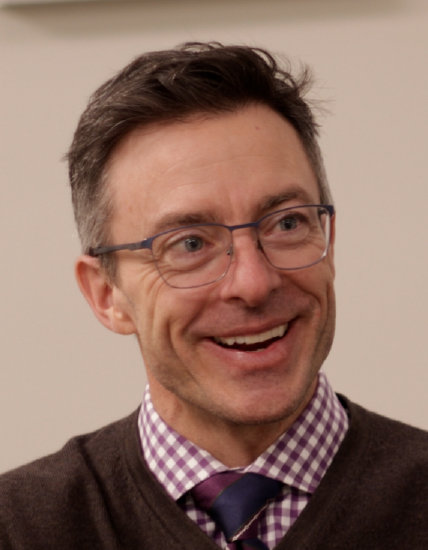Professor
About
Website
PublicationsRole
FacultyPosition
- Professor
Concentration
- Early Modern Hispanic Literatures
- History of Science
- History of Medicine
Department
- Languages, Literatures and Culture
Education
- PhD, Brandeis Univeristy
- BA, Earlham College
Curriculum Vitae:
Biography
My research examines the production and transmission of knowledge during the Spanish baroque, with a particular focus on literature as a means to disseminate ideas about health and healing. Problems of scale particularly fascinate me and this has led me to focus on print genres with particularly high degrees of cultural diffusion. I have published about alchemy in sermons (perhaps the most widely disseminated prose genre of the seventeenth century), and the ways in which drama (Spain’s first mass medium) influenced people’s understanding of the natural world. His current research shows that Jesuits, Franciscans and other religious orders had their own practices related to healing and healthcare; these theologically informed healing practices initially led to conflict with physicians and surgeons and later became the foundation of medical reforms. John Slater joined the faculty of Colorado State University in 2020, after working at the University of California, Davis, the University of Colorado, and Indiana University.
About my research:
2025 Winner of the Waddington Prize from the Sixteenth Century Society for "the best English-language article on the literature of the Early Modern period (1450 - 1750) published in an academic journal."
2024 CLA Insights Series: Looking in the Wrong Places
2023 Interdisciplinary Scholarship Award
Sickness, Suffering, and Supplication: A Conversation about Health and Medicine during The Middle Ages and Early Modern Era in Europe
How People in Early Modern Spain Approached Health
About my teaching:
2025 College of Liberal Arts Excellence in Teaching Award (Tenured Faculty category)
2024 honoree: Career Impact Award (CSU Career Center)
2024 nomination: CSU’s Best Teacher Award (CSU Alumni Association)
Professors Recognized for Pioneering Mentorship Models
Publications
What's new:
-
"New Directions in Literature, Science, and Medicine." Cervantes 2025 45:1, 105-139. To read the introduction, please use this link.
- Review of Vicente Pérez de León. La ciencia de Cervantes. Leiden, Brill; 2023. Dynamis 44.2, pp. 588-91.
- Paulina León, Víctor Sierra Matute, and John Slater."Edición crítica de La verdad encantada en el Castillo de la Confusión. Por otro nombre: Peste del Puerto.” Translat Library 7, no. 5 (2025).
Recent articles and book chapters:
- "Branding, Bondage, and Lope's Typeface." Bulletin of the Comediantes, vol. 74 no. 1, 2022, p. 225-247.
- Slater, John, & López Pérez, Miguel. (2023). “Alchemy and Medicine in Early Modern Iberia." (K. Poole, M. Pérez-Toribio, & J. Sánchez, Eds.). The Renaissance World. Routledge.
- “Queer cambalaches in El rufián dichoso.” Drawing the Curtain: Cervantes’s Theatrical Revelations. Ed. Esther Fernández and Adrienne L. Martín. University of Toronto, 2022. 42-71.
- “The Politics of The Origins of Maize: Spanish Naturalism, World Cuisine, and Epidemic Disease.” The Gastronomical Arts in Spain: Food and Etiquette. Ed. Frederick de Armas and James Mandrell. University of Toronto Press, 2022. 69-94.
- “Drugs, Magic, Coercion, and Consent: From María de Zayas to the ‘World’s Scariest Drug’.” Reconsidering Early Modern Spanish Literature through Mass and Pop Culture: Contemporizing the Classics in the Classroom. Ed. Mindy Badia and Bonnie Gasior. Juan de la Cuesta, 2021. 274-89.
Web Publications:
-
Sixteenth to Eighteenth Century Spanish Connections at Middle Temple. Middle Temple Library.
- “La ciencia desde el púlpito,” Saberes en acción, sabersenaccio.iec.cat/es/la-ciencia-desde-el-pulpito/
Recent Reviews:
- Review: Jorge García López and Enrique García Santo-Tomás, editors. Atardece el barroco. Ficción experimental en la España de Carlos II (1665-1700). Albores de un tiempo nuevo 2. Madrid: Iberoamericana/Vervuert. 2021. Modern Language Review. 118.2 (2023): 266-267.
- Ruth MacKay. Life in a Time of Pestilence: The Great Castilian Plague of 1596–1601. The American Historical Review, Volume 127, Issue 4, December 2022, Pages 1941–1942.
- Folke Gernert. Lecturas del cuerpo. Fisiognomía y literatura en la España áurea. Universidad de Salamanca, 2018. 571 pp. Revista de Estudios Hispánicos. 55. 2 (2021): 482-484.
Updated pedagogical editions:
- Cervantes, Pedro de Urdemalas
- Cervantes, El retablo de las maravillas
- Juana Inés de la Cruz, Los empeños de una casa
- Juana Inés de la Cruz, “Villancico VIII”
- Juana Inés de la Cruz, “El hijo que la esclava ha concebido,” “Este que ves, engaño colorido”
- Moreto, El retrato vivo
- Lope de Vega, Los melindres de Belisa.
- Vélez de Guevara, La serrana de la Vera
- Zayas y Sotomayor, “La inocencia castigada”
- Zayas y Sotomayor, “El desengaño amando y premio de la virtud”
- Zayas y Sotomayor, "La perseguida triunfante"
